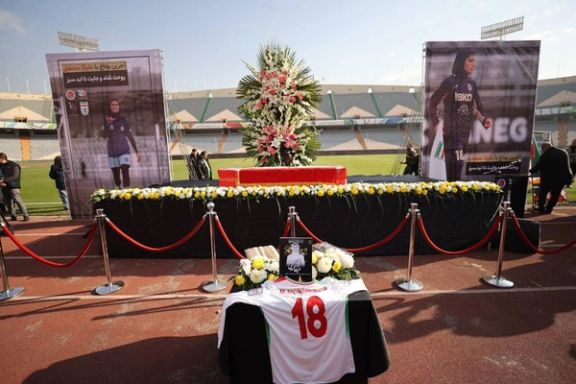Imprisoned Iranian Rapper To Serve More Jail Time
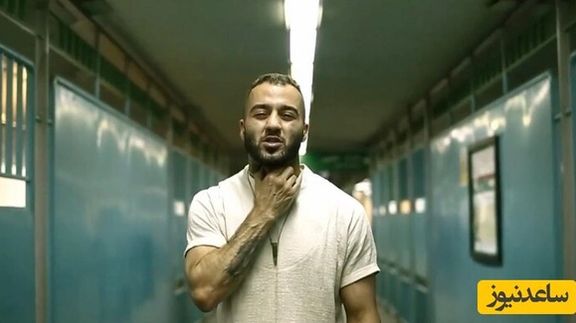
Iranian rapper Toomaj Salehi has been sentenced to further jail time as the regime cracks down on dissent, holding the celebrity as an example to the nation.

Iranian rapper Toomaj Salehi has been sentenced to further jail time as the regime cracks down on dissent, holding the celebrity as an example to the nation.
He has been convicted to "one year imprisonment, two years passport annulment, and participation in a behavioral management course," as revealed by his lawyer on Monday. Amir Raisian, sharing the announcement on social media, explained that Salehi's conviction is linked to "propaganda against the system" and the rapper's grievances against case officers.
As the regime continues to battle dissenting voices, prominent figures such as Salehi have been punished harshly, with many receiving jail time, travel bans and bans on work, to deter the public from further protest.
Salehi's lawyer penned an open letter to Gholamhossein Mohseni Ejei, the head of the judiciary, characterizing the legal proceedings as "the strangest and most extraordinary." The lawyer raised questions about the process's conformity to criminal procedural laws.
Salehi, initially released on bail on November 18 after enduring 252 days in prison, found himself back in custody just 12 days later. This followed the release of a video in which Salehi detailed the torture he endured during his imprisonment. The rapper, in the video, cited the experiences as the basis for his complaints against prison officials and government-affiliated media.
Salehi's social media account reported on December 14 that he suffered "severe damage to the eyes and face" during his latest arrest by government forces, contradicting official statements and raising concerns about the adherence to the law during the violent incident in Babol.
Salehi gained fame for his protest songs that tackled social issues and government injustices in Iran. His first arrest in October 2022 was a component of a wider crackdown on political dissidents of the regime, a response to the protests triggered by the death of Mahsa Amini in morality police custody.
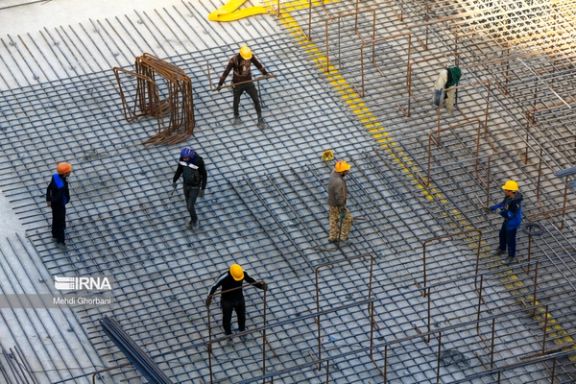
The suicide of six workers at a petrochemical plant in Iran in less than two years is viewed by a prominent economist as an extreme form of protest.
Hossein Raghfar, an economist at Tehran's Al- Zahra University, known for his research on poverty in Iran, expressed this perspective in an interview with the Didban-e Iran news website after two workers, Javad Norouzi and Mostafa Abbasi, attempted suicide at the Ilam Petrochemical Plant in Ilam Province. Their attempt was by hanging themselves, and although they were rescued by colleagues, they are reportedly in critical condition in the hospital.
Raghfar believes the widespread corruption in the government and mismanagement of the economy, mostly controlled by regime insiders, drive some workers to the desperate act of suicide.
The two workers were among thirteen workers the company announced Thursday it wanted to lay off. Colleagues also told ILNA website that the two men hanged themselves at the plant to make a point so that authorities could not claim family issues had driven them to suicide.
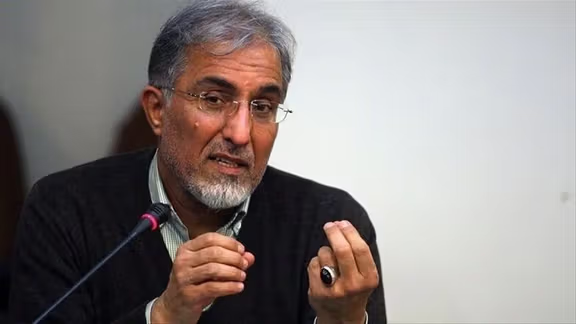
In July another employee of the company, Heydar Mohseni, a married father of two, took his own life after receiving a dismissal order after eighteen years of service. This was the fourth such incident within a period of twelve months.
With around 2,000 employees, Ilam Petrochemical Plant is the largest private sector petrochemical company in the west of Iran. However, its production, inaugurated in 2020, is currently only at around fifty percent of its nominal capacity due to feed procurement issues.
Workers have reported receiving very low wages for harsh working conditions, with irregular payments. Like many Iranians, they have also had to endure austerity resulting from an inflation rate of well over 40 percent in the past three year.
Hossein Raghfar stated that "self-destruction and suicide are one of the most acute and extreme forms of protest to the chaos caused by wrong economic policies." He attributed the prevalence of depression and extreme actions to the perception of widespread financial corruption in government systems, which can lead to anger, rage, and, ultimately, suicidal acts as a form of protest and rebellion when economic and social policies erode hope in the future for many people.
Company officials say the workers who attempted or committed suicide were contract workers and declined to take responsibility. However, this is what most oil and petrochemical sector companies do, by not offering permanent employment. Their owners and managers are mostly well-connected people, who get away with violating rules and regulations.
Other workers told ILNA that for a month there had been talk of laying off thirteen workers, all of whom had an employment record of between eight and eighteen years. Workers claim laying off these workers for redundancy is only an excuse to replace them with others.
“The petrochemical plant is our only hope. The only place we can work. Where can we find work if we are sacked from here,” ILNA quoted workers as saying.
“You cannot violate the job security of workers with 8 to 18 years of service by pointing a finger at contractors and arguing that contractors leave, so the workers [in their employment] must leave, too,” Farshad Esmaili, labor law expert, told the Iranian Labour News Agency (ILNA).
“Outsourcing, dropping the value of labor, temporization [of employment] and deregulation which are the characteristics of neo-liberal economy, are policies that lead to worker suicide,” he said.
Ilam has one of the highest rates of unemployment among Iranian provinces as well as the highest rate of suicide in the country in all but three years over the past three decades.
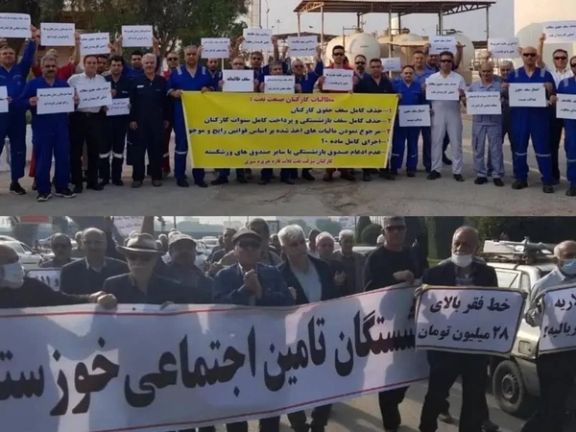
Ongoing labor rights and economic demands have ignited further protests in various sectors across Iran, including retirees and oil and gas employees.
Employees of a petroleum company, affiliated with Iran's Offshore Oil Company in Hormozgan province, gathered once again to voice their dissatisfaction and protest the neglect of their demands.
Likewise, official and contractual employees of the Ministry of Oil, employed at the Aghajari Oil and Gas Exploitation Company, resumed protests against the disregard for their demands including the complete removal of salary caps, elimination of retirement age restrictions, and reimbursement of excess tax deductions.
Prior to this, Iranian oil industry employees had staged strikes, advocating for salary and wage increases to address economic concerns.
In a separate development, workers from the terminals and petrochemical reservoirs in Bandar Mahshahr held a demonstration outside their company's building, protesting the lack of attention to their demands.
Simultaneously, after eight consecutive days of strikes, employees of the Iranian National Steel Industrial Group declared their intention to prolong the strike until their demands, including salary and wage increases, are met.
The trend continued with retirees from the Social Security of Ahvaz and Shush expressing dissatisfaction with poor living conditions and unmet demands, rallying in front of the Social Security Organization and the Governorate building.
Retirees from the steel industry in Mazandaran and Esfahan also gathered in front of the Pension Fund, emphasizing their grievances.
In 2023 alone, Iran has witnessed at least 320 labor-related gatherings and 111 labor strikes, with the majority of protests centered around demands for improved wages and working conditions.
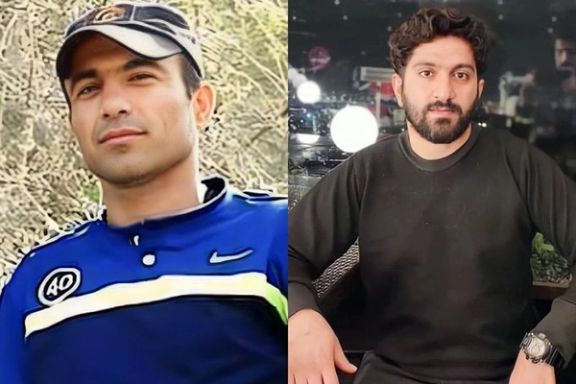
Reza Rasaei and Mojahed Kourkour, protesters sentenced to death, have been dispatched for execution.
Azardokht Haqjouyan, Reza Rasaei's mother, asserted her son's innocence and pleaded for assistance to prevent the execution of his death sentence. She revealed that her son's extensive 1,500-page case file had been reviewed within a week.
Rasaei faces accusations of "murder" in connection with the death of Nader Beirami, the head of intelligence in Sanandaj, during a protest in the city on November 17, 2022.
Mojahed Kourkour's sister confirmed on December 24 that her brother's death sentence had been ratified in the 39th branch of the Supreme Court.
Kourkour is among the detainees of the nationwide uprising in Izeh, arrested on December 20, 2022 during an armed attack by security and law enforcement forces on a village near Izeh.
The judiciary identifies him as the "main suspect" in the killing of 10-year-old Kian Pirfalak, but Kian's family steadfastly maintains that the perpetrators were government forces. The situation has raised international concern over the due process and human rights in Iran.
In the latest annual report, Human Rights Activists In Iran (HRANA) claimed the execution of 746 individuals, noting a 32 percent increase of executions from 2022 and death sentences issued rising by 68 percent.
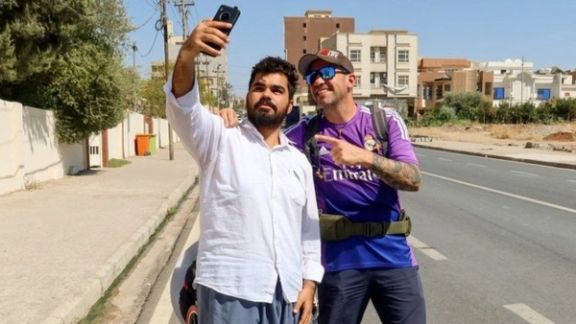
Iran’s embassy in Spain confirmed the release of Santiago Sánchez, a Spanish football fan held on espionage charges during his trip from Madrid to Qatar's World Cup.
Sánchez had been detained in Tehran amidst an extensive Middle East tour on his way to Qatar but is understood to have been arrested after visiting the grave of Mahsa Amini, the symbol of the 2022 uprising who died in morality police custody.
Before his unexplained disappearance in October 2022, Sánchez, a former paratrooper and devoted Real Madrid supporter, documented each leg of his extensive journey on social media. Starting his expedition in January 2022, he traversed Europe, Turkey, and Iraq before facing over a year of detention in Iran.
“The embassy of the Islamic Republic of Iran is pleased to announce the release of Santiago Sanchez Cogedor, the only Spanish citizen detained in Iran,” the Iranian Embassy in Spain posted on social media. “His release comes amid friendly and historic relations between the two countries and in accordance with the law.”
Tehran is known to be holding over 10 Western nationals, with accusations from governments and NGOs suggesting that Iran is employing them as leverage in negotiations involving its own citizens.
The release was a "humane and legal" step, Iran's Foreign Ministry spokesperson said on Monday, without giving further details.

Iranian women's national soccer team player, and Emory University team member Melika Mohammadi, tragically died in a car accident last week, while visiting Iran.
On Sunday, she was commemorated at Tehran's Azadi Stadium before her repatriation to the United States for burial.
Born in the southern Iranians city of Shiraz in 2000, Mohammadi died on December 24 at the age of 23 in a car accident near the city of Bam in eastern Iran where she played for the city’s Khatoon FC, the winner of the 2022-2013 Iranian league title.
“Melika was also a women’s right activist and large empowering force to younger generations,” her teammates at Emory women’s soccer team for which she played for two years wrote on Instagram.
Female fans of Esteghlal FC honoring the memory of Mohammadi at a match in Tehran on December 30.
“She really wanted to empower other women in Iran and had plans for setting up several soccer schools in Iran with her own money to help other girls whose training opportunities are very limited,” a family member told Iran International.
The memorial during which Mohammadi’s flag-draped coffin was carried by military guards was attended by Mohammadi’s parents and other family members, friends, some sports officials, and several athletes.
Mohammadi’s sister, Aida who was wearing her sister’s number 18 national team shirt, and several others, ran a victory round at the stadium Sunday in her honor.
This was the first time such a ceremony was being held for a female athlete at Azadi Stadium. As a woman, Mohammadi had never practiced or played there due to an unwritten ban.
Women have not even been allowed to watch men’s matches at Azadi and other stadiums for four decades, except in a few rare cases, due to the ban. The world’s soccer authority (FIFA) has tried to convince the Islamic Republic for nearly a decade to lift the ban on women attending stadiums to watch male players. In recent months the ban has been relaxed somewhat.
Women’s matches are also never shown on TV.
Mohammadi’s coffin being carried at Azadi Stadium
Mohammadi started playing soccer from a very young age. She was invited to play for the national girls’ soccer team at the age of eleven and later to the under-17 team and the national women’s team.
Most recently, Mohammadi played as a midfielder for the national women’s soccer team. She played a pivotal role in her team in the 2022 AFC Women’s Asia Cup, the first ever win in the games for Iran's women’s team.
Since the age of 13, when she moved to the United States with her family, Mohammadi had also simultaneously played for Walt Whitman High School in Bethesda, Maryland as well as Emory University of Atlanta, Georgia, from where she received her Bachelor of Science in anthropology and human biology.
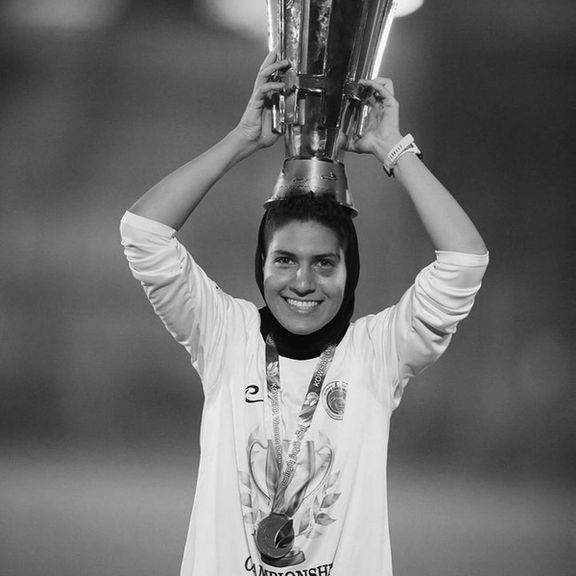
To be able to play for the national team in Iran and study in the US, she had to travel back and forth between Iran and the United States throughout these years.
Her mother said in a speech at the memorial ceremony at Hafezieh Stadium of Shiraz that her daughter decided to play in the Iranian league and the national team to help “shatter the glass ceiling” keeping Iranian women from success.
In the past few days Mohammadi has been remembered by fans with posters, silence, and chants at several matches.
Video posted by former national team coach, Maryam Irandoust, shows Melika and her teammates singing on a train during a tour.
“Iranian women who do not have a share of Azadi Stadium are only given their right of presence there after they die, ... Melika Mohammadi is truly commemorated only when women can freely be [allowed] presence at Azadi,” one of the tweets about the event read.
“Alas that Melika came to Azadi Stadium, for the first and last time, in these circumstances,” the very popular former TV football commentator and producer Adel Ferdosipour, who attended the ceremony at Azadi Stadium, told reporters referring to the unwritten ban on women’s team practicing and playing at the stadium like men’s team.
“Melika darling, you were the reason … Iranian female soccer players could go Azadi Stadium, a stadium where they had never trained there even once,” Hajar Dabbaghi, another national soccer team player wrote on Instagram while criticizing male soccer players for failing to show up at Melika’s remembrance.
